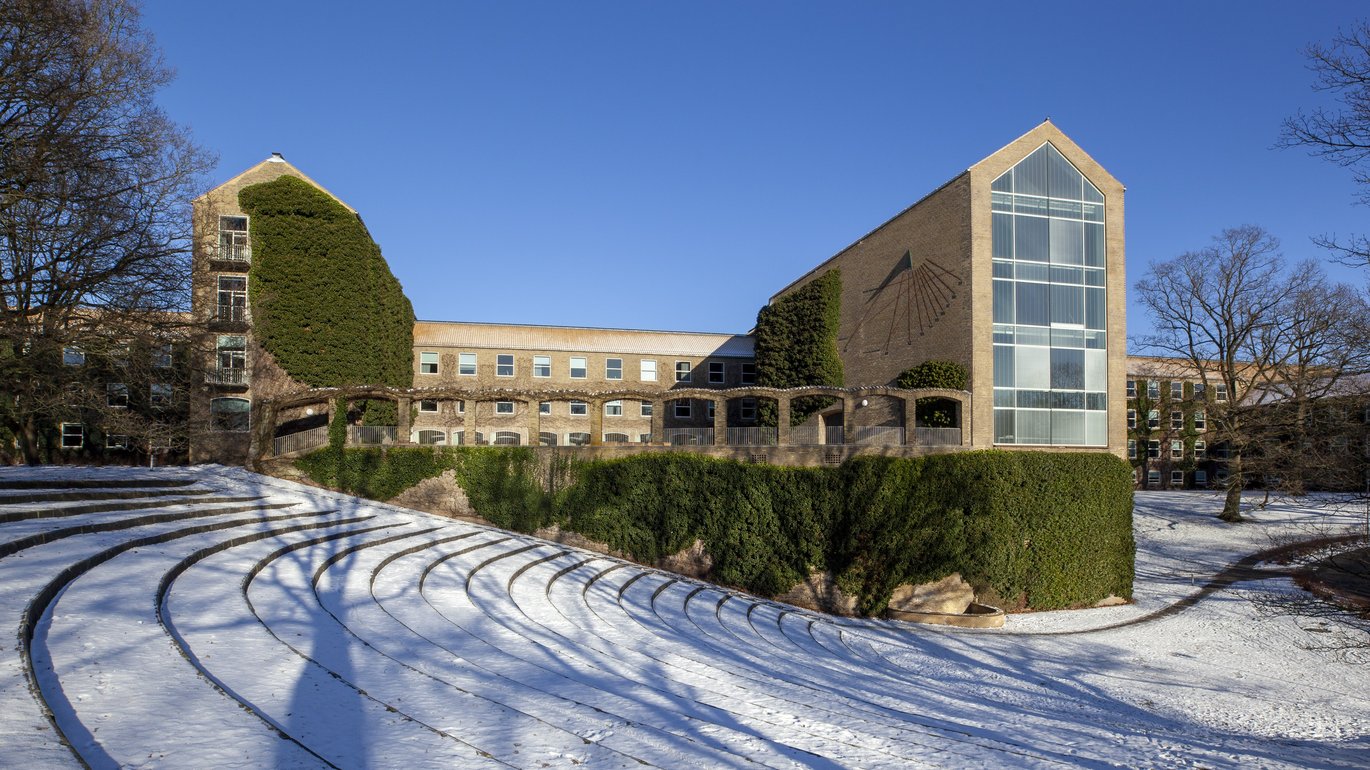Happy holidays from the dean

Dear all,
I had hoped to be able to send you a more cheerful Christmas newsletter this time, but 2022 has been a year of major challenges not only globally and nationally, but also locally here at the Faculty of Arts. These challenges are not going to disappear in 2023, but we are starting to see the outline of possible future solutions to the major financial problems facing us at present. The faculty has strong academic foundations, and we will use this as our point of departure. If we all pull together as a team, we can continue to offer the students inspiring teaching – and the faculty can continue to provide research, communication and collaboration of an extremely high standard. I’ll return to this later.
During the autumn I kept you up to date with our financial expectations, and in October I talked about the upcoming four-year budget. The faculty is facing a considerable loss of income from our educational activities which will impact the framework conditions for everything we do. We already knew about some of these challenges before the summer holiday: cap on enrolments and the relocation of degree programmes, for instance. Other challenges have arisen owing to a decline in student effectiveness and the disappointing admission figures in October. The figures for 1 October ended up below the level to which we were planning to adjust by 2030. This means that the financial impact will be felt here and now, instead of being felt in the course of the next 8 years. DPU is currently making cuts of about DKK 15 million which will include reductions in staff numbers. This is a sad situation for the parties involved, for DPU, and for the faculty as a whole.
The School of Communication and Culture and the School of Culture and Society are both working on a plan to adjust to the loss in income in the years ahead. They have slightly more time to manage this than DPU, so they will hopefully be able to find a different way to make the necessary savings. That’s our objective, at least. The measures adopted may include stronger collaboration, some mergers and closures, and general simplification of the way we work.
I have predicted that we would be able to clarify the situation before Christmas. But we have also started discussions in the humanities task force, which was set up by Universities Denmark to generate ideas by mid-2023 about greater sustainability and improved national collaboration in the humanities. I believe it is important that the measures taken by the Faculty of Arts harmonise with the direction of this work and the recommendations that the task force provides. And I think we will have a good idea of how this work is progressing by March. This gives the faculty up until March to prepare the necessary decisions about its financial framework and the future development of both the faculty and the individual schools.
The universities have been navigating in choppy waters for some time now. And unfortunately, the outlook on our barometer looks pretty stormy in the years to come. For one thing, we still don’t know whether the politicians intend to extend the taximeter increase for the humanities and social sciences. What’s more, plans to establish one-year Master’s degree programmes now appear in the recently announced government platform. But let’s hope that 2023 is the year in which the taximeter increase is made permanent. The new minister is said to be open to dialogue, and we will now begin discussing good solutions for the future of our degree programmes with the Ministry and the Agency to minimise the surprising degradation of the Danish educational system and the opportunities for young people. These are two of my biggest wishes for the new year.
But it’s not all doom and gloom! I am delighted that the faculty has managed to implement AU’s promotion programme for professors. We received 71 applications in the first round, and I know that all these applicants have now been informed of the results. I’d like to take this opportunity of congratulating the 12 members of staff who have been offered the chance to take part in the programme, and I’d also like to thank the consulting committee for all their hard work. There are many of highly qualified candidates in the pipeline. So I’m already looking forward to opening a new round of applications next year. Despite the financial problems facing us, we still aim to improve our career paths all the way up to professor level. Since 2014 we have managed to double the number of professorships at the faculty, and we will be continuing our efforts in this area.
On behalf of the faculty, I’m also proud that the Faculty of Arts is one of the top 43 humanistic faculties in the world on the Times Higher Education World University ranking list, based on citation statistics and the recognition of colleagues. This is a great achievement which is due solely to you and all your dedication and hard work. Thank you!
And just before you go home to take a well-deserved Christmas break, I’d like to thank you all for everything you have done in what has been a very chaotic period – both at Aarhus University and in the world around us. I hope that the peaceful spirit of Christmas will descend on you now, and that you enjoy a wonderful holiday with your families and friends.
Merry Christmas and a Happy New Year to you all.
Johnny Laursen